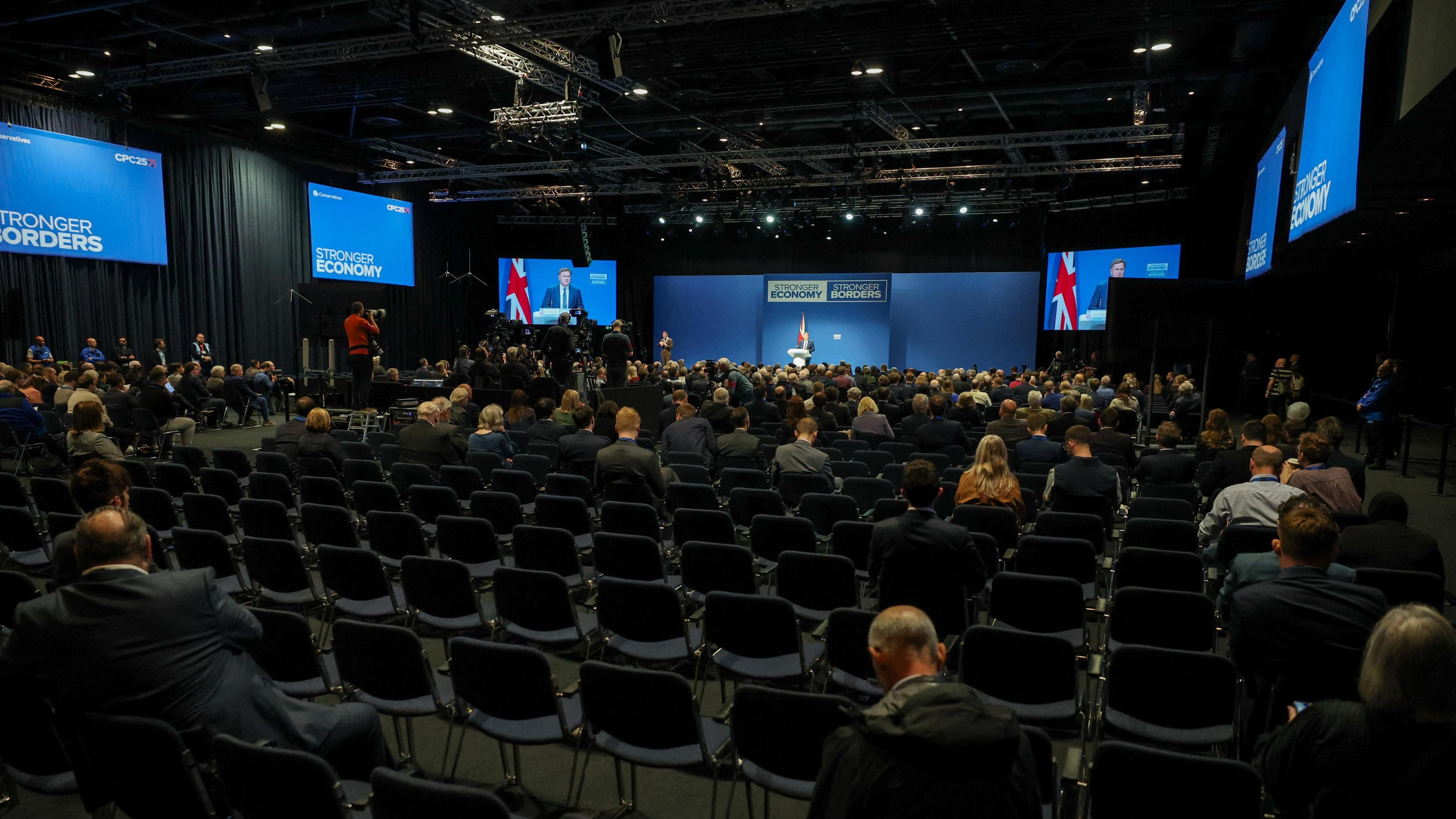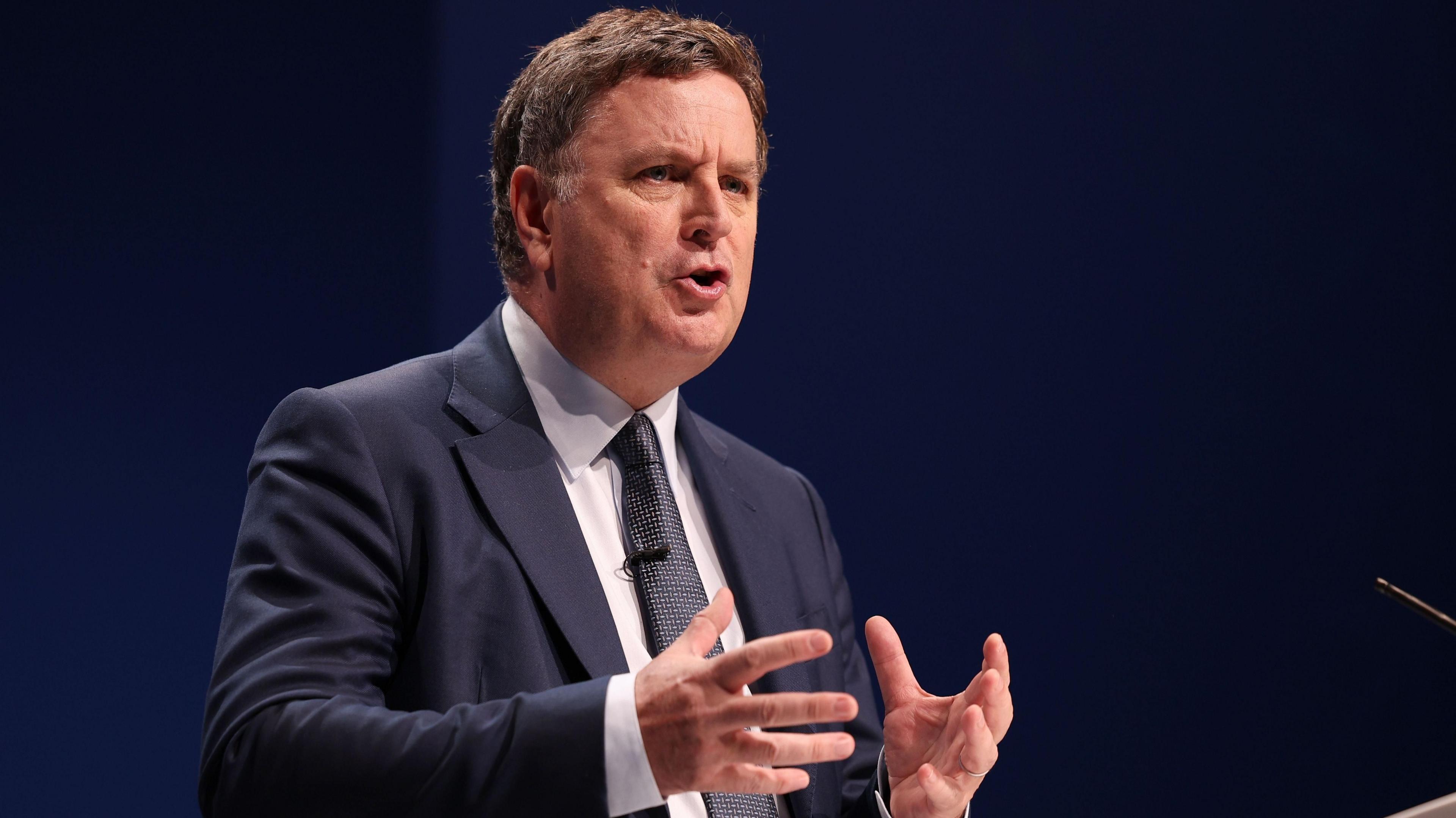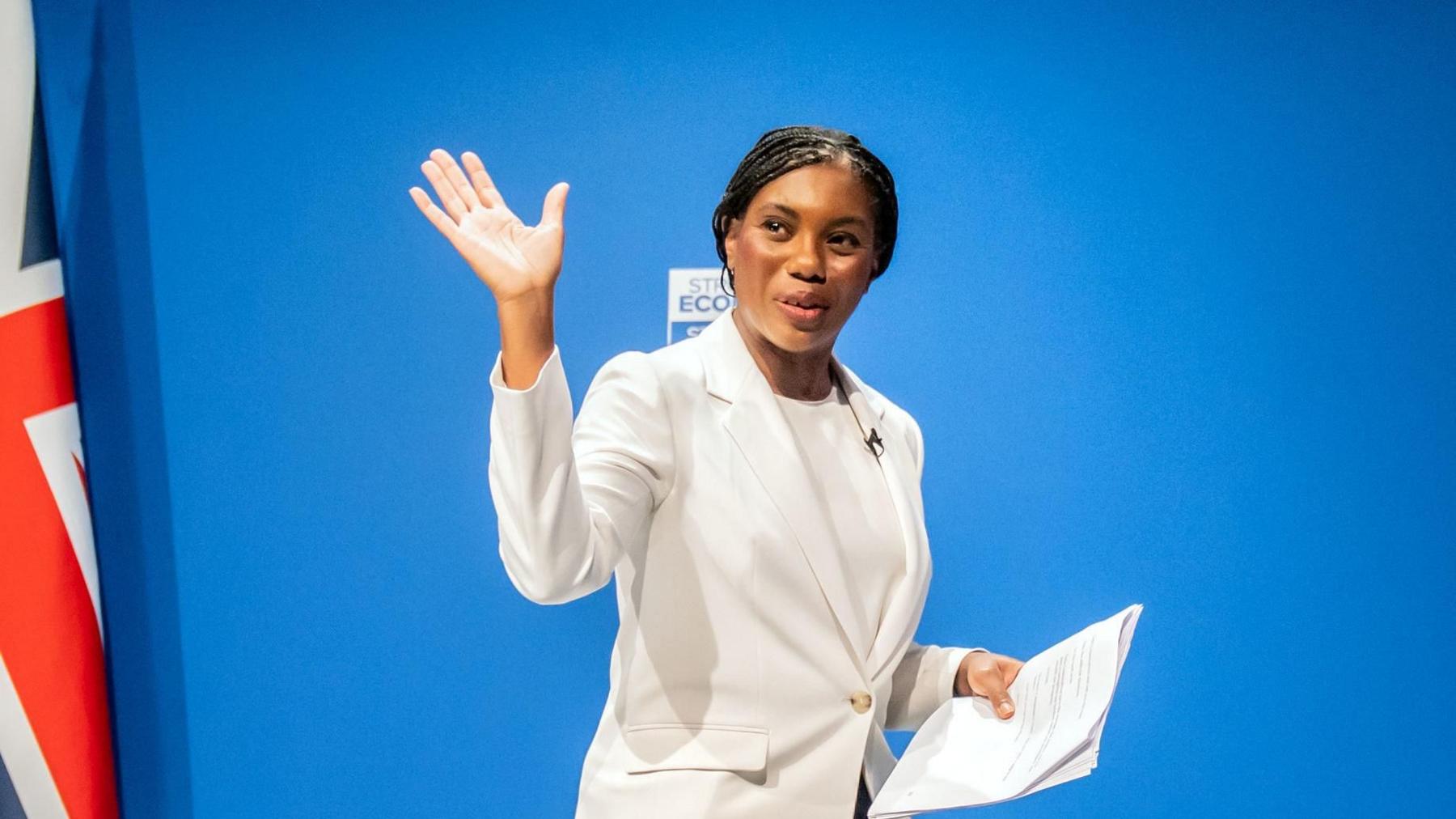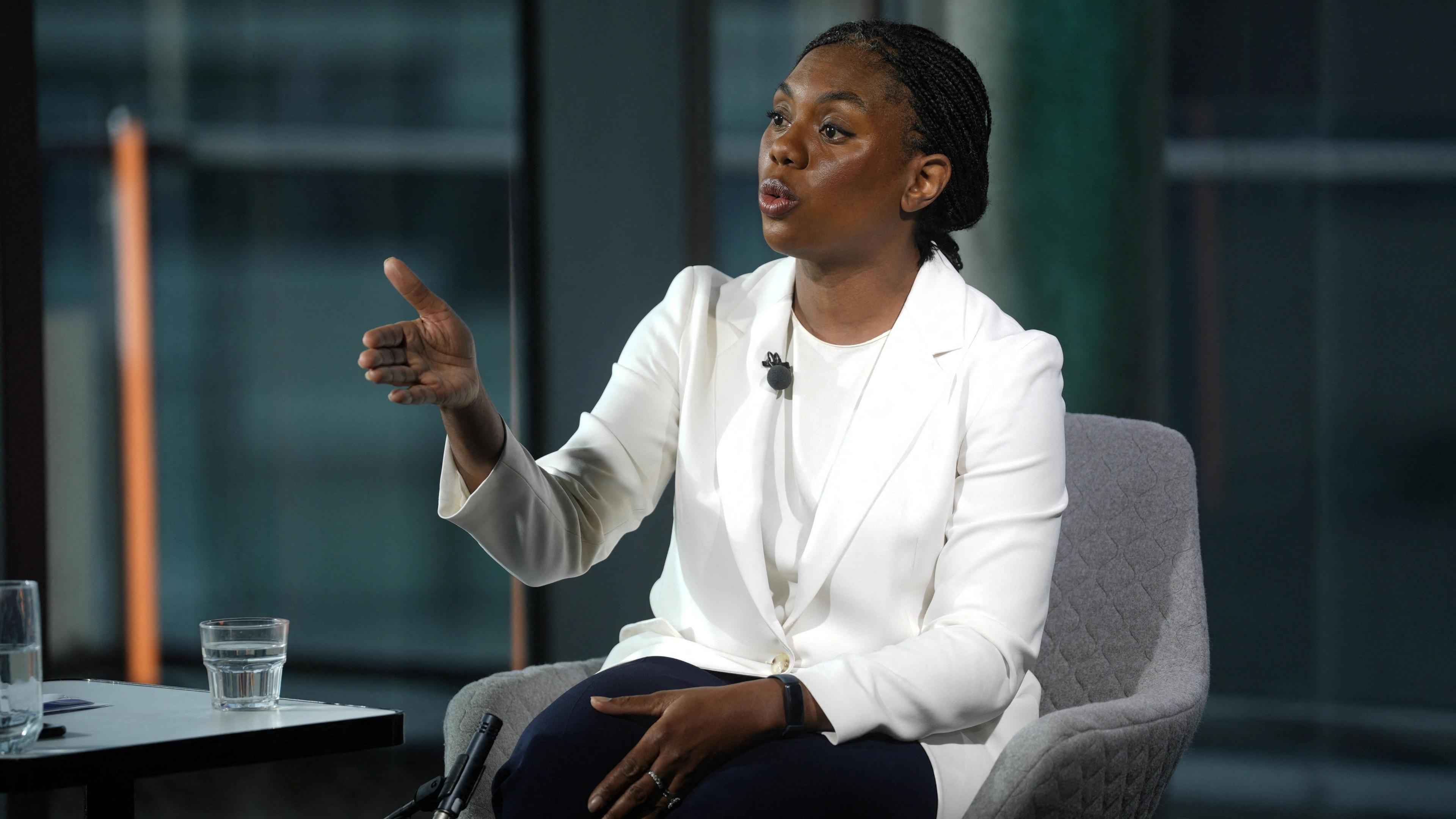Bleak reality of opposition sets in for Conservatives

- Published
Before us, there is a battalion of unemployed chairs.
For the Conservatives right now, the fight even to be listened to is not easy.
The speech by the shadow chancellor Sir Mel Stride is one of the big set-piece moments of this conference.
And yet there were countless empty seats in a modestly sized hall.
Next door, in the exhibition centre, there are swathes of empty blue carpet.
Some of the fringe events exploring the party's future have been standing room only. But not in the main hall.
This party, so often and for so long the dominating force in British politics, is a shrivelled version of its usual self.
They have not had a conference like this in more than a quarter of a century.
Granted, they were in opposition this time last year too.
But many attendees then will have signed up before they knew about that – the general election could have come after it.
Plus, 12 months ago, there was a survivors' elation vibe about their proceedings: a leadership election was underway and members of any political party tend to revel in a battle of ideas and personalities, almost whatever the circumstances.
This year, the bleak reality of opposition has set in.

Sir Mel's speech contained a blizzard of policy announcements designed to catch the eye of voters
Even back in 1998, a year and a bit into their last big stint in opposition, they were the principal voice in opposition to a big majority government.
Not so now.
A year and a bit on from a cataclysmic election defeat, the Tories have become more unpopular.
It is Reform UK that have momentum, a sustained lead in the opinion polls and a recent track record of election victories, albeit a very long way away from a general election.
In the weeks prior to the Conservatives gathering in Manchester, there has been a steady drip drip of former Tories joining Nigel Farage, some with the parting rhetorical gift of claiming their old party is finished.
It is not an entirely downcast mood here though.
Perhaps by definition those who have turned up are still up for the scrap ahead.
The party has decided to embark on a blitz of policy announcements, after a year in which they have endured a recession in attention amid the boom in interest in Reform.
What they want you to notice is their pitch to be seen as economically credible.
They want to shrink the state by around £50bn by cutting benefits, cutting foreign aid and cutting the civil service.
Most of that money saved would be spent paying down the deficit, but some would go on eye-catching policies like scrapping business rates in England and helping young people save to buy a home.
Yet the ghost of Liz Truss lingers: despite their best efforts to politely disown her, the Conservatives' opponents will probably never lose their appetite for reminding voters of the calamity of her brief premiership.
And for Kemi Badenoch, the challenge is being noticed – and persuading her party to keep her in her job.
Her rivals, Sir Keir Starmer, Reform leader Nigel Farage and the Liberal Democrat leader Sir Ed Davey have all been around for longer and are all likely better known.
Filling those empty chairs, commanding attention is just the beginning of the task she confronts.
Has there ever been a tougher time in modern history for the Conservative Party?
I'm not sure there has.
Related topics
- Published6 October

- Published5 October
